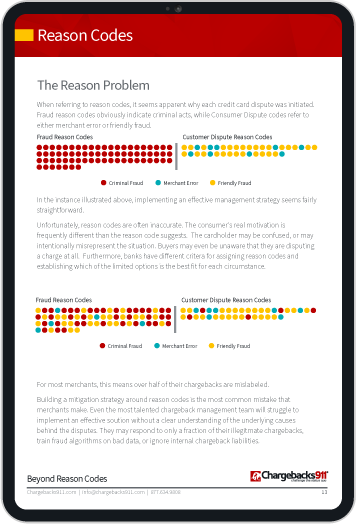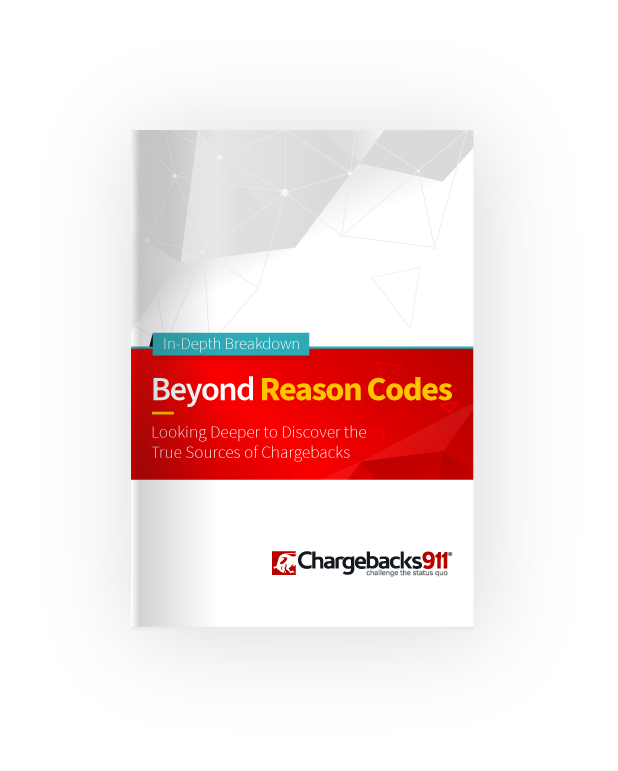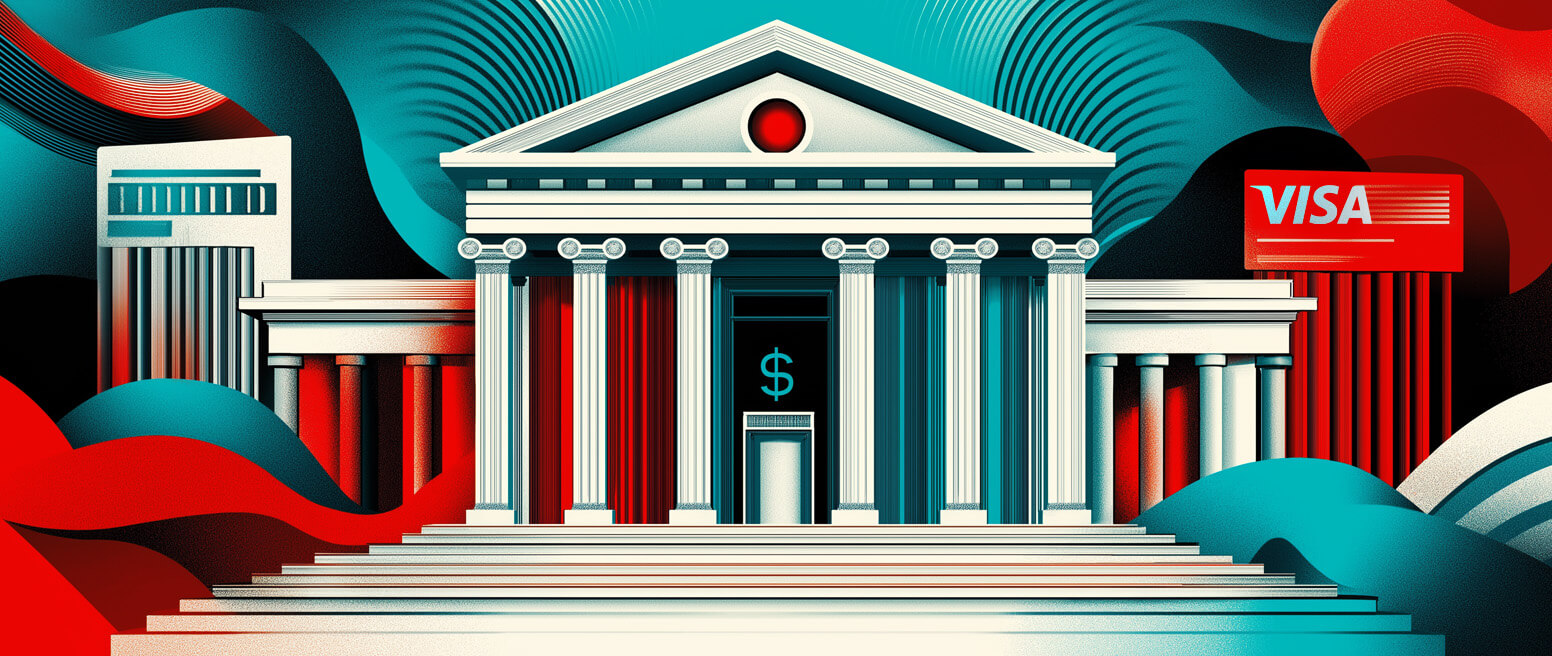Breaking Down Visa Chargeback Time Limits for Cardholders & Merchants
Are you a merchant fighting an unfair chargeback claim? Or, are you a cardholder dealing with suspected criminal fraud on your Visa card? In either case, Visa chargebacks come with built-in time limits you need to know about.
Each phase of the dispute process has a specific deadline for action. Waiting too long could mean that you forfeit your chargeback rights.
In this post, we’ll answer some of the most important questions about Visa chargeback time limits. We’ll see the basic Visa time limits for merchants and cardholders, and what Visa reason codes have different guidelines. We’ll also explore why being aware of these time limits is important for both merchants and consumers.
Have more general questions about chargeback time limits, or want to see the rules for other card brands?
Learn More About Chargeback Time LimitsRecommended reading
- What is the Visa Arbitration Process for Chargebacks?
- Verifi Order Insight: Using Data to Block Visa Disputes
- Visa Chargeback Rules: Your “A-to-Z” Guide for Visa Disputes
- Rapid Dispute Resolution: Avoiding Chargebacks With RDR
- Visa Acquirer Monitoring Program: Major Visa Updates in 2025
- Visa Authorization Rules: Changes to Time Frames & Options
How Long Do Cardholders Have to File a Visa Dispute?
The deadlines are pretty straightforward on the consumer side. From the original transaction or expected delivery date, Visa cardholders have no more than 120 days to file a dispute. There are situations in which the Visa chargeback time limit may be shorter, which we’ll cover later in this post. In most situations, though, 120 days is the maximum.
How Long Do Merchants Have to Respond to a Visa Dispute?
The Visa chargeback process is broken into phases. Merchants must respond within 30 days of day one for each phase of the process. In Visa’s case, day one is the day after each phase is initiated. Merchant time limits have only one exception: if either party wants to escalate a dispute to arbitration, they must do so within 10 days.
Visa Chargeback Time Limits for Cardholders
Visa chargebacks have specific timeframes for each reason code, as outlined in the Dispute Management Guidelines for Visa Merchants. These are meant to ensure that disputes are resolved quickly and without unnecessary delays. It's important for merchants to follow these time limits because failing to do so can result in being unable to dispute the chargeback or get your money back.
To help you understand these timeframes better, here are some important Visa chargeback time limits by reason code:
Fraud-Related Visa Reason Code Time Limits
| Visa Reason Code | Description | Time Limit |
| 10.1 | EMV Liability Shift Counterfeit Fraud | 120 Days |
| 10.2 | EMV Liability Shift Non-Counterfeit Fraud | 120 Days |
| 10.3 | Card-Present Fraud | 120 Days |
| 10.4 | Card-Not-Present Fraud | 120 Days |
| 10.5 | Visa Fraud Monitoring Program | 120 Days |
Authorization-Related Mastercard Reason Code Time Limits
| Visa Reason Code | Description | Time Limit |
| 11.1 | Card Recovery Bulletin | 75 Days |
| 11.2 | Declined Authorization | 75 Days |
| 11.3 | No Authorization | 75 Days |
Processing-Related Mastercard Reason Code Time Limits
| Visa Reason Code | Description | Time Limit |
| 12.1 | Late Presentment | 120 Days |
| 12.2 | Incorrect Transaction Code | 120 Days |
| 12.3 | Incorrect Currency | 120 Days |
| 12.4 | Incorrect Account Number | 120 Days |
| 12.5 | Incorrect Amount | 120 Days |
| 12.6.1 | Duplicate Processing | 120 Days |
| 12.6.2 | Paid by Other Means | 120 Days |
| 12.7 | Invalid Data | 75 Days |
Customer Dispute-Related Mastercard Reason Code Time Limits
| Visa Reason Code | Description | Time Limit |
| 13.1 | Merchandise / Services Not Received | 120 Days |
| 13.2 | Canceled Recurring Transaction | 120 Days |
| 13.3 | Not as Described or Defective Merchandise / Services | 120 Days |
| 13.4 | Counterfeit Merchandise | 120 Days |
| 13.5 | Misrepresentation | 120 Days |
| 13.6 | Credit Not Processed | 120 Days |
| 13.7 | Canceled Merchandise / Services | 120 Days |
| 13.8 | Original Credit Transaction Not Accepted | 120 Days |
| 13.9 | Non-Receipt of Cash or Load Transaction Value | 120 Days |
Visa Chargeback Time Limits for Merchants
Unlike cardholder time limits, which may vary depending on the reason code, the Visa chargeback time limit for merchants is 30 days. This same time limit applies to all Visa reason codes.
The timer begins ticking as soon as the chargeback is initiated. Merchants need to keep a close eye on this starting date to make sure they don't exceed the specified time limit for each reason code.
As mentioned above, though, the official Visa chargeback time limits can make it appear that merchants have a lot more time at their disposal than they really do. Other parties, such as acquirers and processors, have actions to perform in the same timeframe. The acquirer, for example, needs to receive, process, and forward the claim to the issuer. The time allocated to this comes out of the time allotted to the merchant.
These acquirers and processors have the power to impose their own deadlines to give themselves more time. In many cases, merchants may only have 5-10 days in which to respond to a chargeback.

4 Phases of the Visa Chargeback Process
From start to finish, disputing a charge can often take 45 to 90 days. Whenever possible, however, Visa prefers to have customer disputes finalized in a month or less. This means that merchants need to respond to each phase as quickly as possible.
There are four basic phases to a Visa dispute:
- Dispute
- Dispute Response/Pre-Arbitration
- Dispute Response/Reversal
- Arbitration
Responses are mandatory in all cases. At one point, Visa allowed merchants to ignore the dispute until after the deadline, effectively accepting the chargeback by default. Now, though, Visa imposes a fine on non-response, even if that response is to accept the chargeback.
Also, the point that qualifies as “Day One” of the time limit resets at each phase of the chargeback process. So, while the time limit on Visa chargebacks is predetermined, it will still move around as one progresses to a different stage of the dispute:
Visa Pre-Arbitration Chargeback Time Limits
The Visa chargeback process often ends when a merchant either accepts the dispute or successfully represents the chargeback. This is not always the case, though; the issuer can choose to dispute the evidence provided by the merchant. It’s at their discretion to decide whether to accept or continue.
Visa refers to this stage of the chargeback life cycle as pre-arbitration. This situation occurs when the same transaction is disputed for a second time by the issuer.
Remember that Fraud and Authorization disputes go through the Allocation workflow, so liability is assigned automatically when the dispute is issued. That means the acquirer must initiate the pre-arbitration. Visa chargeback time limit rules give acquirers 30 days from the dispute processing date to file a case on the merchant’s behalf.
For Processing Error and Consumer Dispute cases, the issuer initiates the pre-Arbitration attempt. They’ll have 30 calendar days from the designated processing date of the pre-arbitration attempt.
Visa Arbitration Chargeback Time Limits
If the parties to a dispute cannot come to a resolution at the pre-arbitration stage, the Visa dispute proceeds to arbitration.
The card network gives either party 10 days from the pre-arbitration response processing date to submit a case. These deadlines are intentionally designed to put cardholders, issuers, merchants, and acquirers on equal footing. As Visa explains, “the timeframes for all parties in the ecosystem [are]...equalized. Issuers and acquirers/merchants [are] provided the same amount of time to respond throughout the cycle.”
Exceptions & Special Circumstances
As we mentioned, Visa dispute time limits for merchants are straightforward. They must respond within 30 days at each phase or 10 days for arbitration. There are some exceptions on the cardholder’s side, though. Four reason codes have modified time frames:
If the dispute falls under reason code 10.5, the timeframe doesn’t begin with the transaction. Rather, the 120-day time limit starts on the day the fraud is identified by the Merchant Fraud Performance Program.
There are some cases in which delivery of goods or services can reasonably be expected after the actual transaction date. Buying concert tickets a month before the event date, for example. In these cases, the chargeback time limits are calculated based on multiple criteria. The time period used to gauge this Visa dispute time limit starts on either:
- The transaction date, if the date the expected goods/service delivery date was unspecified
- The date the cardholder returned or attempted to return the merchandise (if the merchandise was returned due to late delivery)
Also, the dispute must be processed either:
- Within 120 days of the last date, the cardholder expects to receive the goods or services (not to exceed 540 calendar days from transaction).
- Within 120 days of the date, the cardholder was informed that the goods/services would not be provided (not to exceed 540 calendar days from transaction).
Finally, the issuing bank must wait 15 calendar days before initiating a dispute.
If the cardholder deems the goods or services defective or not as described, the Visa chargeback time limit is calculated based on either the transaction date, or the date the cardholder received the goods or services that were not as described.
Visa reason code 13.6 deals with chargebacks stemming from a credit not being processed. Issuers must wait 15 calendar days from the credit transaction receipt date before initiating a dispute unless doing so would cause the dispute to exceed the time limit. These disputes must be processed no later than 120 calendar days from either:
- The transaction processing date
- The date on the credit transaction receipt; if the CTR is undated, then from the date the cardholder returned the merchandise or canceled services
Working With Visa Dispute Deadlines
Visa chargeback time limits are confusing…much like many other parts of the Visa dispute process. Without knowing how different factors affect the timeframe, however, means merchants are much more likely to miss a deadline and automatically lose a case.
If you're a merchant, outsourcing chargeback management to the right professionals can free up time and ensure a much higher win rate. In fact, Chargebacks911® offers a guaranteed ROI for all chargeback disputes we compile on your behalf. Contact us today to learn more about recovering revenue amid restrictive chargeback time limits.
FAQs
How long do you have to file a chargeback with Visa?
Depending on whether you are a cardholder or a merchant, you will have either 120 days to file a chargeback as a consumer and 30 days to respond to the chargeback as a merchant. Keep in mind, though, that there could be special circumstances applied to each reason code, so it’s important to know exactly what you’re disputing before filing.
Can I claim chargeback after 120 days?
In most cases, customers have a window of up to 120 days to initiate a Visa chargeback from the date of the original transaction. It's important to understand that these time limits can vary depending on the specific reason code associated with the dispute. For instance, reason codes related to fraud typically have shorter timeframes, given the urgency of addressing potential fraudulent transactions, whereas customer dispute reason codes may provide more extended periods for resolution.
How far back can a chargeback go?
Visa chargebacks typically allow customers to initiate a dispute within 120 days from the date of the original transaction. However, certain specific circumstances, like instances of fraud or exceptional cases, may have different time limits.
How much is the fee for Visa chargeback?
Visa chargeback fees for merchants can vary, but they often include a processing fee per chargeback case, which may range from $15 to $100 or more. Additionally, if the chargeback is not successfully defended, the merchant may also lose the disputed funds and be subject to additional fees.
What justifies a chargeback?
A chargeback is typically justified when a cardholder disputes a transaction due to reasons such as fraud, unauthorized charges, goods not received, or receiving damaged or incorrect items. The cardholder must provide evidence supporting their claim, and if the dispute is valid, the card issuer initiates a chargeback to reverse the transaction and refund the cardholder.
What is the 540 day rule for Visa chargeback?
A 540-day time limit applies to select Visa dispute reason codes. The rule states that a dispute time limit is “not to exceed 540 calendar days from the transaction processing date.”
For example, say a cardholder paid for a sofa to be delivered eight months in the future. But, the delivery window came and went, and the sofa never turned up. The issuer can initiate a dispute, as long as it is within 120 days from the expected delivery date, and not more than 540 days from the date of the transaction.
How to get a Visa to reverse a charge?
If you make a purchase using a Visa-branded card, you should not contact Visa directly. Instead, you may be able to get the charge reversed by filing a chargeback with the bank that issued your card.
How often do merchants win chargeback disputes?
Rarely. Merchants win chargeback disputes 20% to 30% of the time and recover revenue just 18% of the time.















